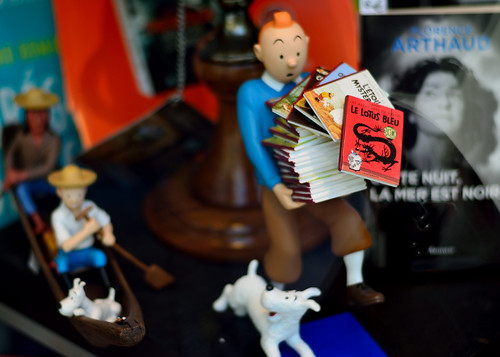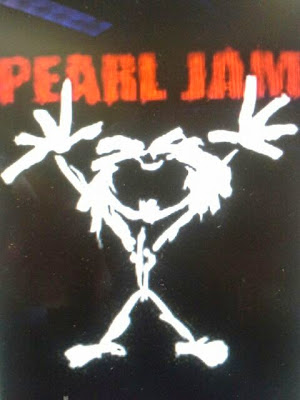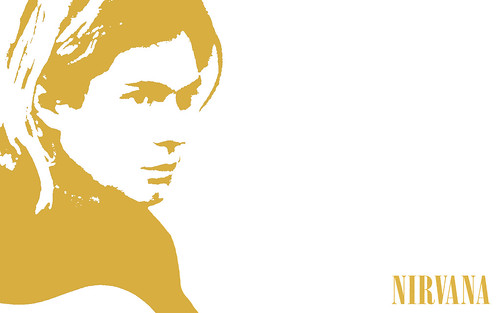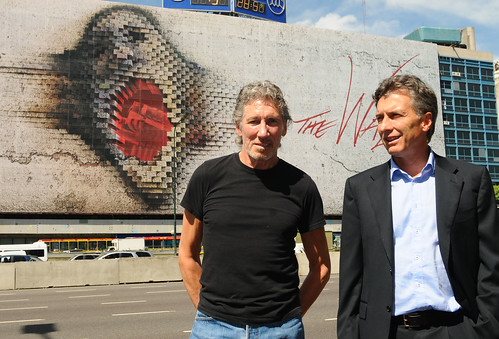
Photo courtesy of Tom Hilton's Flickr page - Tintin: https://www.flickr.com/photos/tomhilton/19280101259/in/photolist-vnHyoX-2tZ3uK-dqsSDB-dykK4Y-9kzFVy-7GJxJY-3aQuPh-rjRWie-q4HNHS-phkj8Y-5YAZR2-nRxP4N-dSxQcr-doVQkV-3aQvzd-8a4UG6-bn4KQK-6MhBsw-5GBg8P-6MhBz9-tbxwD-4YEwDC-rhEJvq-5oSQvC-3aQvdj-3aQuth-M7Hwx-ba15DR-avuFvF-56oXnY-7gYFm8-3aKYQe-g8mHY-vAigg-3aKYpH-C9mz4-5kfT8N-qxyHwB-9KnVZ4-fAjXRK-fjhG8y-GWCUi-3aKXDD-6GNGk2-6pY4WZ-5uU1Gm-auFs3Z-487Do4-qmxZ19-4neY13
Creative Commons License: https://creativecommons.org/licenses/by/2.0/
There are some things that are a bit tiresome and frustrating when you like and/or admire certain things that are readily available in Europe, but which are absent in the United States. Important things, like universal, affordable healthcare, taking climate change seriously enough to actually take serious steps towards reducing it rather than just denying it exists, serious vacation and benefits, among others. But those are political issues, so let's move on. I also miss castles and cathedrals, as well as strolling through old narrow streets, or sipping coffee at a sidewalk cafe in some of the charming old sections of towns. An appreciation of soccer/football, and people who do not assume that if it's not American, it is not worth paying attention to. Indeed, just the smaller scale of things in Europe tends to hold a certain attraction, especially contrasted with the Texas style mentality of the bigger, the better, that too often prevails here in the United States with everything from houses to cars to meals to almost everything else. .
Most Americans probably still do not accept a lot of European trends and the overall European mindset, although it probably is getting a bit closer to Europe on some levels.
However, we have a long way to go before we can appreciate some of the cooler aspects of European life.
That said, one thing that I have always closely associated with France, or Francophone culture in general, is Tintin. I say that because Tintin is actually a Belgian cartoon that has had some decent success around the world, although once again, that success is quite limited here in the United States.
Yes, Tintin was always one of those things that, for me, kept those French and/or European cultural ties intact, which was more often than not a refreshing change.
It should be mentioned her that I grew up partially in France, and particularly when I was young. You might never know it if you meet me now, but French was my first tongue, and my first schooling experience (and not a pleasant one, I might add) was in France. One thing that I remember from back then was Goldorak, which actually is Japanese in origin, but which so completely dominated the landscape of toys and cartoons and comics back then when I lived there, in a small suburb northwest of Paris called Bois d'Arcy, that Goldorak still conjures images of France, and cultural and linguistic ties to the old country.
But other than Goldorak, which dates back to when I was between the ages of three and four (maybe up to around five), the next oldest thing like that for kids which I was into, and which always reminds me of life in France, was Tintin. There were other such figures of comic books (literally books), such as Lucky Luke and Asterix. But Tintin reigned supreme for me, and it was always Tintin that I seemed to turn to the most, and tried to collect. It almost felt like Tintin was the Beatles, while Lucky Luke or Asterix were like the Rolling Stones. Good, but not as good as Tintin.
For me, it felt a little like reinforcement of my grandfather's stamp collection, which is to say that it felt worldly.
Okay, I know what at least some of you are saying now, that the first two Tintin books in particular were generally negative, with the first being a condemnation of communism in the Soviet Union, and portraying that country as very backwards and almost demonic. Then, Tintin in the Congo was pretty much blatantly racist and pro-colonialism, something which Hergé more or less seemed to apologize for later on.
Otherwise, Tintin felt a little bit like a glimpse of what traveling the world might be like. This was so much the case, that Stephen Speilberg was greatly influenced by Tintin, and used this influence as the basis for creating the also very well traveled Indiana Jones. Both of these fictional characters had adventures all around the world.
Tintin came first, though. He went all the way to China and Tibet (before it was absorbed into China). He went to South America and some banana republics in Latin America. He traveled to the United States, and he also traveled widely across Europe. He visited Saudi Arabia as well. Hell, he even visited the moon!
Yes, Tintin was worldly, and it kind of buttressed the seeming importance of learning more about the world - in fact, of knowing that there is a whole world out there, something that I suspect my fellow Americans (regardless of their political persuasion) of generally losing sight of.
So, how did Hergé come about with the genesis of the idea of Tintin?
“The idea for the character of Tintin and the sort of adventures that would befall him came to me, I believe, in five minutes, the moment I first made a sketch of the figure of this hero: that is to say, he had not haunted my youth nor even my dreams. Although, it’s possible that as a child I imagined myself in the role of a sort of Tintin”.
So, how did Hergé come about with the genesis of the idea of Tintin?
“The idea for the character of Tintin and the sort of adventures that would befall him came to me, I believe, in five minutes, the moment I first made a sketch of the figure of this hero: that is to say, he had not haunted my youth nor even my dreams. Although, it’s possible that as a child I imagined myself in the role of a sort of Tintin”.
I grew up on Tintin and, now as a father, I have a son who is growing up on Tintin, too. He loves Tintin, and this has been allowing me to relive certain parts of my own youth in this regard, which seems awesome.
However, it is a bit troubling to think that Tintin can and has been rightly viewed as racist, and reinforcing the European white supremacy of the first half of the twentieth century, particularly that second book, "Tintin in Congo".
For his part in reflecting on that many years later, Hergé said:
“For the Congo as with Tintin in the Land of the Soviets, the fact was that I was fed the prejudices of the bourgeois society in which I moved … It was 1930. I only knew things about these countries that people said at the time, ‘Africans were great big children … Thank goodness for them that we were there!’ Etc. And I portrayed these Africans according to such criteria, in the purely paternalistic spirit which existed then in Belgium”.
Indeed, there is no denying that dark past for what may seem to be, on the surface, a relatively innocent cartoon geared more for children, although not exclusively so. Still, there are so many things in our world that are tainted by some skeletons of the past, and I for one am not about to abandon Tintin and Hergé's books, even if they receive some just criticism for a murky past. The later books are generally quite enjoyable, and it has been a pleasure rereading them and reliving my own past as my son, who is an enthusiastic fan of Tintin on his own now, enjoy them together.
The first volume of the famous Belgian comic “The Adventures of Tintin” was an anti-Soviet propaganda, indoctrinating young readers with anti-communist ideas





